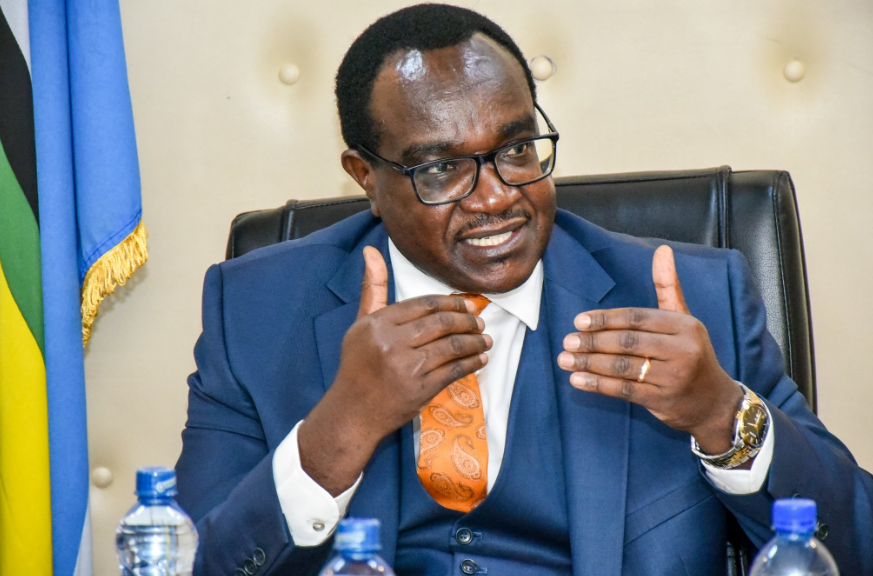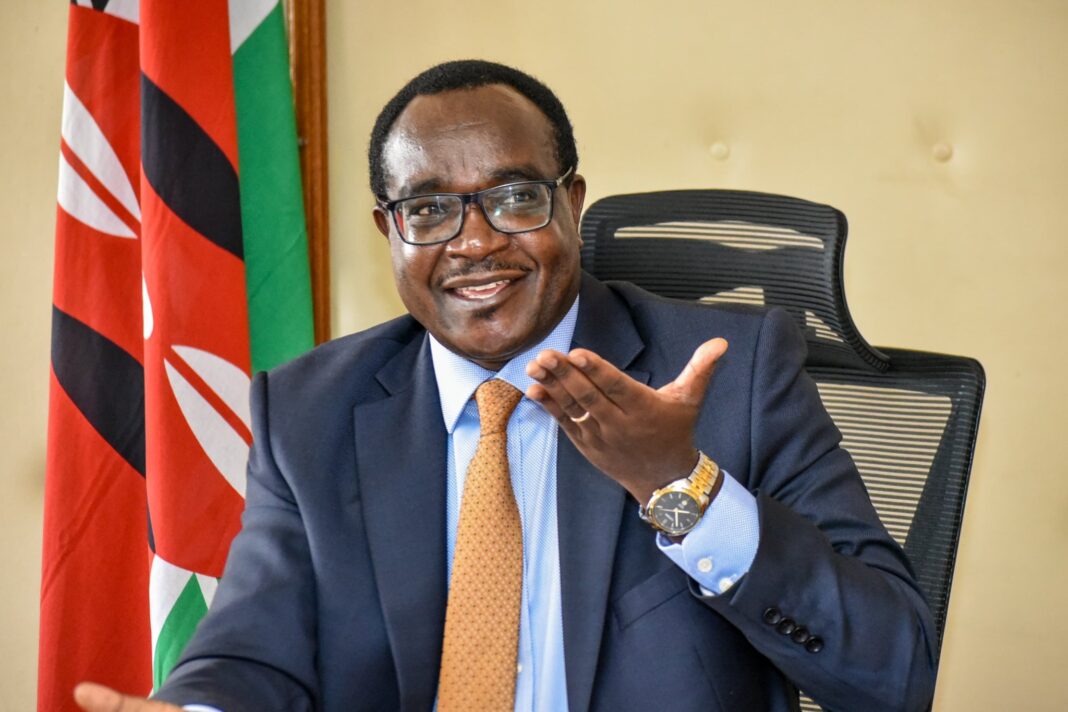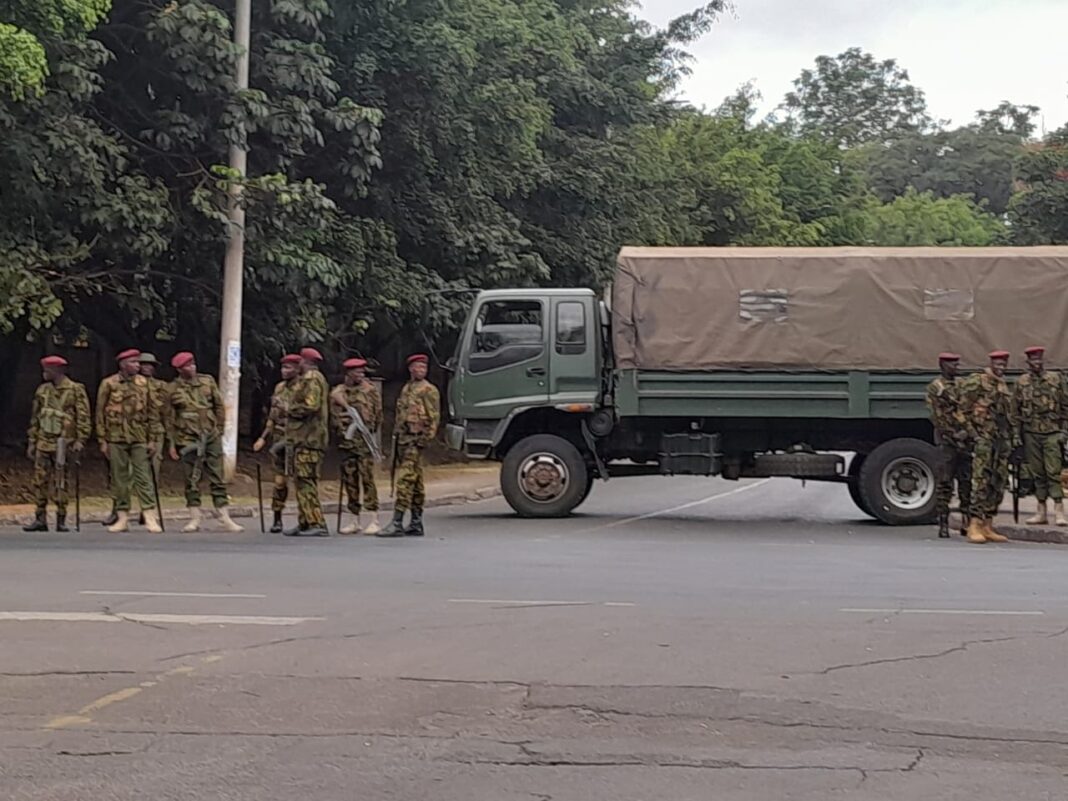Education Cabinet Secretary Julius Ogamba has made a sharp U-turn on his earlier statement about ghost schools, insisting that the government did not disburse Ksh1.1 billion to non-existent institutions.
His clarification comes a week after he told Parliament that funds had been sent to “students who do not exist,” sparking outrage and demands for accountability.
Ogamba now claims his words were misinterpreted, arguing that some schools had only failed to submit data required for capitation. His latest remarks have fueled questions over transparency in Kenya’s education funding.

CS Ogamba Denies Existence of Ghost Schools
Education CS Julius Ogamba has refuted claims that his ministry disbursed Ksh1.1 billion to ghost schools across the country. Speaking on Wednesday, he said his earlier statement was taken out of context and misreported.
Ogamba explained that what he meant was that the funds had been withheld, not released. According to him, around 990 schools had not submitted necessary enrollment data for verification, forcing the ministry to delay or reduce their capitation payments.
“We did not say there are ghost schools. What I indicated in Parliament is that by the time I spoke, we had not released Ksh1.1 billion to schools that had not submitted their data,” Ogamba said.
He maintained that the ongoing verification exercise aims to confirm the authenticity of school data before releasing the full capitation. “Once the process is completed, we will publish the findings,” he assured.
CS Contradicts His Parliamentary Testimony
Ogamba’s latest statement contradicts his remarks before the National Assembly on November 5, where he appeared to confirm that the government had been funding ghost schools. Addressing MPs then, Ogamba said, “The balance we are having is Ksh1.1 billion that we have been releasing to students that do not exist.”
His words triggered anger among lawmakers, who accused the Ministry of Education of gross negligence and corruption. National Assembly Speaker Moses Wetangula questioned why no disciplinary action had been taken against officials involved in what appeared to be the theft of public funds.
“You have officers who have a duty to keep and update records of schools continuously,” Wetangula said. “Public money has been wired to non-existent schools for non-existent students. How many of your officers have you interdicted for doing this criminal act?”
Ogamba, however, defended the ministry, saying no sanctions had been issued because the verification process was still underway. He promised that appropriate measures would be taken once all data is analyzed.
Questions Arise Over Accountability
Despite the CS’s clarification, questions linger over accountability within the Ministry of Education. Lawmakers and members of the public remain skeptical about how such a large sum—Ksh1.1 billion—could be linked to unverified or incomplete school data.
Critics argue that even if the funds were not yet disbursed, the initial statement highlights deep flaws in record management and monitoring systems. “It’s either a case of poor data handling or deliberate cover-up,” one education analyst said.
The controversy has also reignited calls for a digital overhaul of the ministry’s data management system. Many stakeholders believe that without proper digital records, cases of ghost schools and fake enrollments will continue to thrive, costing taxpayers billions.
Ministry’s Credibility on the Line
Since the verification exercise began, the ministry has already closed 10 secondary schools due to the absence of students. This has further fueled doubts about the integrity of school registration records nationwide.
The opposition has accused Ogamba of attempting to save face after exposing deep-rooted corruption in his docket. “You cannot walk back on your own admission to Parliament,” a senior opposition MP said. “The CS must tell Kenyans the truth about how billions are being mismanaged.”
Education experts have urged the government to make the verification data public once the process is completed. They argue that transparency is the only way to rebuild trust in a ministry that handles billions in public funds annually.
Meanwhile, civil society groups have called for an independent audit of all schools benefiting from government capitation. They believe the audit will expose loopholes and ensure future funding is based on verified enrollment data.
As the controversy unfolds, the ministry faces growing pressure to demonstrate that no funds have been lost to ghost schools. Ogamba’s denial may have calmed immediate political tensions, but without hard evidence, skepticism among lawmakers and citizens remains high.


